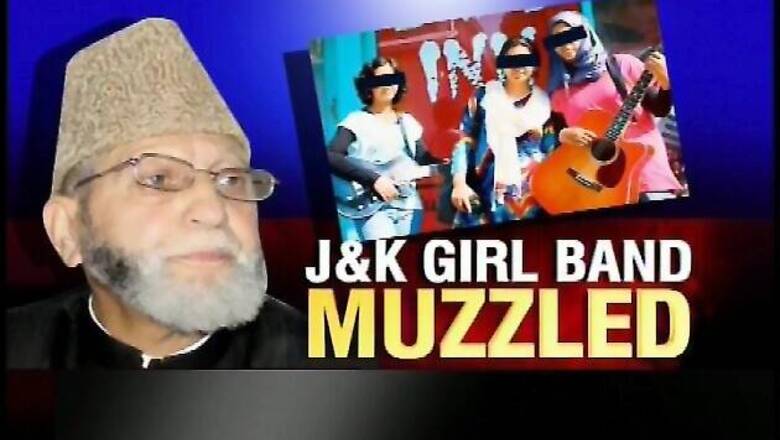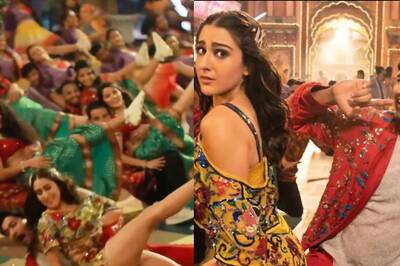
views
New Delhi: "Long live Islam, long live India, long live Hinduism, give our countryppl some broad mind oh almighty, it's urgently needed" and "it's not about few people but masses, what happened to few harm many, discourage for others what we will achieve from all this". These were the messages that appeared on the Facebook page of "Pragaash" - Jammu and Kashmir's first all-girls band - even as those objecting to their singing in public issued a fatwa against the band members.
They might have been forced to quit their band following the fatwa that was issued by Valley's Grand Mufti, but the "Pragaash" girls have received undeterred support from both the political community and civilians away and from the Valley.
"Pragaash", which means to travel from darkness to light, proclaims on its Facebook page "Long live India! Jai Hind! Peace!" And yet, it has invited Grand Mufti's Bashir-ud-Din to declare that singing is "un-Islamic" and that girls should limit themselves to singing in front of their family members, within the confines of their homes.
Even as political community, including Jammu and Kashmir Chief Minister Omar Abdullah, who termed Grand Mufti members "morons", decried the fatwa and the heavy criticism of the band before and after it, Kashmiris, who have been victims of terrorism in the state for the past two decades, poured their support for the girls. Messages like "Pragaash, strum your guitars louder and never stop beating the drums. Keep rocking!", "Please don't call it quits, please don't stop singing, please don't put away your guitar", "It is not about Hindu or Muslim, your girls are doing a great job" started appearing the band's Facebook page, which has over 1600 fans.
However, amidst all the support and the issuance of fatwa, a bold voice has been silenced and the girls have quit the band. However, it seems unlikely that the questions that stemmed from the controversy will be silenced by the orthodox diktats of Grand Mufti.
The almost draconian stance on "Pragaash" by Grand Mufti raises questions that have far exceeded limits of music and Islam.
1. How and why does the Grand Mufti have the authority to issue fatwa against a musical band, which has never created controversy or publicly criticised Islam and the Muslim community?
2. Should the government be more proactive against such diktats and have the control to override them in the face of imminent threats to those who face fatwas?
3. If the band never wrote anything un-Islamic or publicly criticised India and the Muslim community, did Grand Mufti simply pronounced the fatwa, which is a legal pronouncement issued by the highest official in religious law to resolve an issue where Islamic jurisprudence is unclear, on the basis of the members' gender?
4. Has Indian society essentially become ignorant of freedom of speech and expression and let "cultural terrorism" emerge as a great threat to the largest democracy in the world?
5. Should the government act tough against outfits like Dukhtaran-e-Millat (Daughters of the Nation), whose leader Asiya Andrabi endorsed the fatwa and said the rise of "Pragaash" as a rock band would have been "hazardous"?




















Comments
0 comment